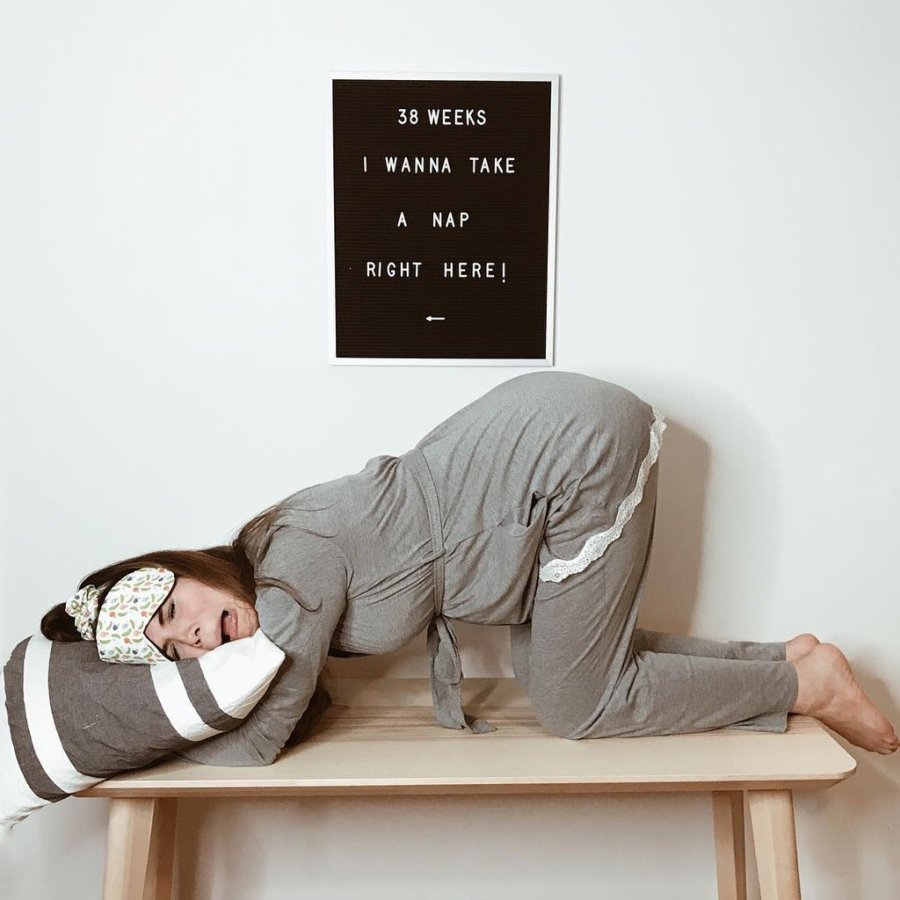Most women will experience sleep disturbance in pregnancy. As your bump gets bigger you will find your sleep can become more interrupted! You will be told that ‘it is your body’s way to prepare you for those sleepless nights when your baby arrives’, but having some strategies can be helpful.

Keep a Routine
I know this sounds like you may be being told to ‘suck eggs’ but a good sleep routine in the later stages of pregnancy can help to encourage longer sleep periods. You will need them, and can help set up a good routine for when your baby arrives.
- Stop drinking fluid 2 hrs before you go to bed. Getting up to go to the toilet throughout the night can disturb your sleep, but also can just be a real faff getting in and out of bed (especially from 34 weeks). To help reduce the amount of times you are dashing to the loo try to not drink anything at least 2 hrs prior to bed.
- Eat dinner at least 2 hrs before you are getting into bed. If you are suffering from heartburn at night, try this out as can make a real difference. If the heartburn is really bad try to eat little and often (making sure your evening meal is smaller in size) and avoid fried, spicy or ‘heavy meals’ – red meat, pasta filled, or pastry based foods.
- Have a bath or shower before bed. Whether you like it or not this is a great way to unwind from your day. The warmth of the water also helps to relax muscles in the body and is a great routine.
- Some people advise relaxation techniques before bed. This is great if it works for you, but the truth is I always had such good intentions to incorporate this into my daily routine and I never managed it! If you are like me in any way, be reassured that a good bedtime routine and a bath can help you relax as much as relaxation exercises.
- Try to set the mood after your bath, keep the room dimly lit, don’t watch TV or respond to texts, try to read, write or just listen to the radio before you go to bed.
Exercise
This may sound absurd, but research has identified that 30 mins of exercise 4-5 times a week can actually help your sleep. Even if you haven’t been exercising before pregnancy try to incorporate 15 mins 3-4 times a week, building up to 30mins 4-5 times a week. Swimming, yoga and walking are great forms of exercise that can be done throughout pregnancy. It really does work and can be all that is needed to help your insomnia at night. Worth a go!

Pillows & more pillows
As you bump grows, getting comfortable can become more difficult. You will find your pillows around you increase as your pregnancy progresses. Having a pillow between your legs can help to stabilise the pelvis when sleeping. One under your bump can make it more comfortable in the later stages of pregnancy and a pillow on the back can help to ease back pain. Let’s not forget a couple of pillows underneath your head to help alleviate heartburn. No matter what you think at the beginning of your pregnancy by the end you will have increased your pillows. Embrace the pillows and let them work for you.
Sleep position
Pregnant mums are now advised to fall asleep on their side to reduce the risk of stillbirth in the third trimester (28-40 weeks). This is the recommended position to go to sleep in as you will spend the longest time in this position when sleeping. If you do wake up on your back, please don’t worry, just roll over to your side again.

If all else fails, get up!
Lying awake in bed can be frustrating and everything always seems a lot worse at 3am in the morning. It is now advised that if you are wide awake in the middle of the night you should get up, have a warm drink (avoid caffeinated drinks) and then try to go back to sleep again. Listening to the radio can be helpful or making a to-do list for the next day can help. So rather than lying there worrying (we all do it) why not get up and distract yourself before going back to sleep.
Remember:
If you are getting really sleep deprived, it is essential that you prioritise sleep and catch up when you can. A study found that over 51 % of pregnant women reported having one weekday nap, with over 60% having naps during the weekend*. Grabbing 10 mins sleep or more can make a real difference for your energy levels. Whatever works for you is right, but be aware you need your sleep for your overall health.

* National Sleep Foundation – Pregnancy & Sleep (ONLINE) https://sleepfoundation.org/sleep-topics/pregnancy-and-sleep (Accessed 27th December 2017)



